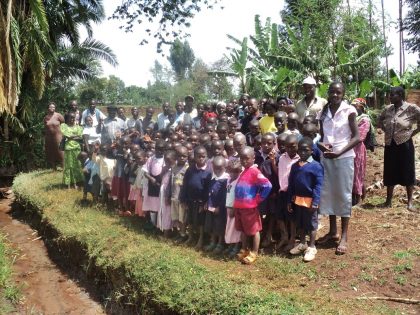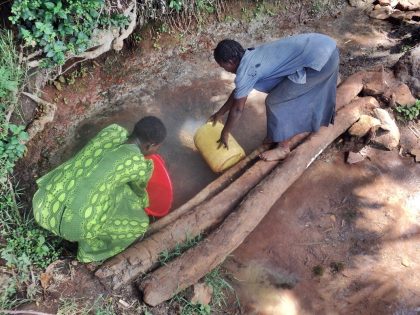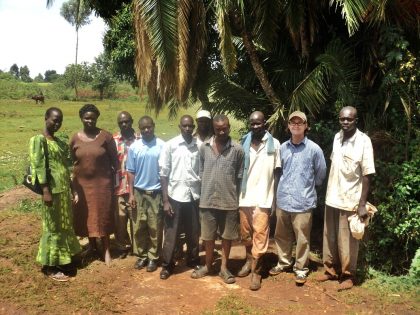 Location
Location
Mwiruti, Western Province, Kenya
Community Description
The Mwiruti community is a very rural area of approximately 4,000 people settled across four adjacent villages (Maramu village, Marinda village, Mwiruti village, Mwitoma village). It is an agricultural-based community with a very limited infrastructure, a very high level of poverty and a low level of education. Most families in the area live well below the poverty line and survive only on small-scale subsistence farming, and the buying and selling of fruits and vegetables amongst their neighbors.
Livestock is limited to raising poultry, goat herding, and cattle. The level of poverty in the area also keeps many children out of school in order to work on their farms, while those who are able to go must do so in villages several kilometers away. Aside from one pre-school/orphanage of around 60 children, there are currently no public schools, no community health center, no community market and only 4 small shops of limited household supplies.
 Access to clean water has been a significant challenge to the Mwiruti area. Unclean water has led to a number of waterborne diseases and public health issues. There are currently no public boreholes and no developed water springs in any of the four villages.
Access to clean water has been a significant challenge to the Mwiruti area. Unclean water has led to a number of waterborne diseases and public health issues. There are currently no public boreholes and no developed water springs in any of the four villages.
The main source of water access is a natural water spring at the edge of the Mwitoma village. However, this source is often contaminated due to community runoff and livestock use. As a result, many villagers simply prefer to walk the several kilometers required to access clean water in a nearby village.
The community group responsible for this project, Mwiruti CBO, represents the leadership of the four villages in the Mwiruti area and is supported by the entire community. This group is focused on “giving value to life by promoting positive living conditions for a healthy community” and has targeted this undeveloped water spring as the best means of access to clean water for the surrounding communities.
Project Description
This project is the construction of a centralized water spring for the 4 rural villages of the Mwiruti community.
 Project funding will be used for construction materials, including bricks, cement, lumber, sand, water piping, and mesh wire.
Project funding will be used for construction materials, including bricks, cement, lumber, sand, water piping, and mesh wire.
The work will be done by a team of 3 certified masons, two of whom recently worked on the Savannah Water Spring Project – Kenya successfully completed under the direction of Peace Corps Volunteer Brian Shultzabarger.
A community development committee has been set up in order to manage the project. A construction manager and a finance manager have been designated in order to keep the project on schedule and under budget.
This project is to be constructed over an existing natural water spring. The spring pool itself will be dug out and filled with large stones for the foundation core followed by a layer of polythene paper, mesh wiring, gravel, and top soil. A brick and cement dam will be constructed at the base of the former pool with two piped water spouts for access.
Project Impact
Approximately 4,000 people in 4 communities will benefit from this project.
Peace Corps Volunteer Directing Project
Brian Shultzabarger
Comments
Once protected, this water spring will provide the people of four villages of the Mwiruti community, the pre-school/community orphanage, and those who raise livestock and crops, with improved access to clean water. Additionally, it will serve to reduce the number of waterborne infections resulting from unmaintained water sources in the area.
This is a very high-impact project that utilizes a proven technology. It has tremendous community support and is designed to be a long-lasting solution to a major local problem.
Dollar Amount of Project
$555.00
Donations Collected to Date
$555.00
Dollar Amount Needed
$0.00 – This project has now been fully funded through the generosity of The Soneva SLOW LIFE Trust as a part of their Clean Water Projects initiative, with the help of friends and family of Peace Corps Volunteer Brian Shultzabarger.
We encourage others to continue to donate using the Donate button below, and we will notify Brian of your donation. Additional funds will be used to fund the next project by the PCV and/or other projects in the country of service.
This project has been finished. To read about the conclusion of the project, CLICK HERE.